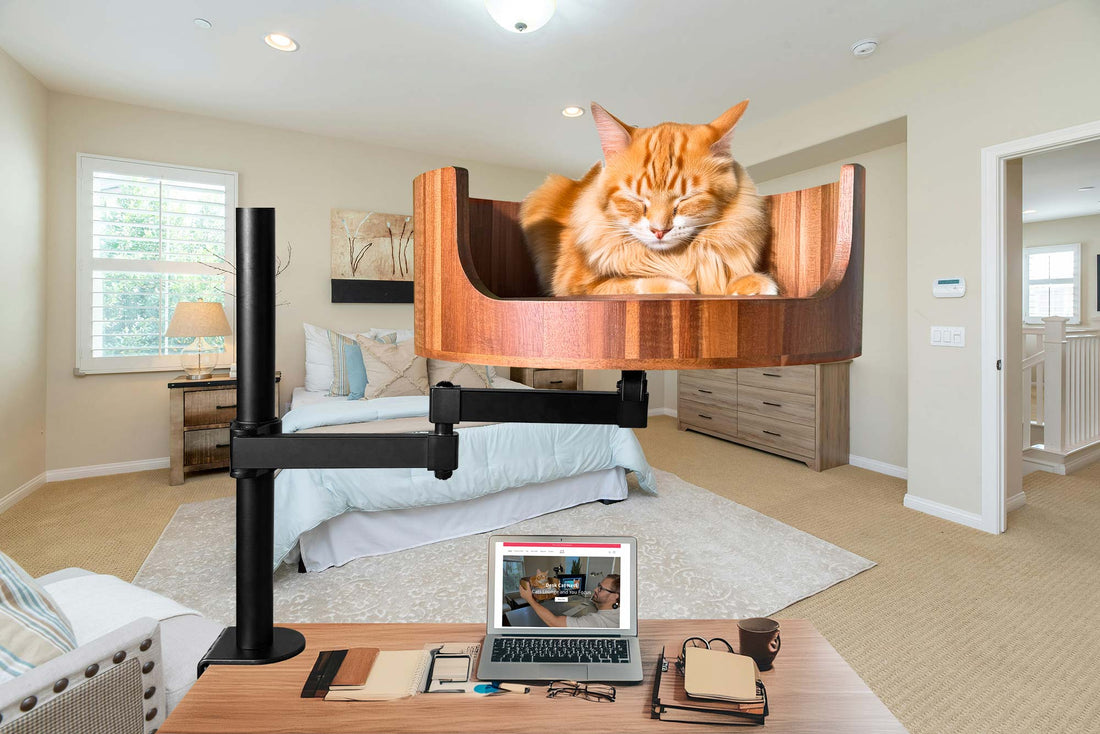
Signs Your Cat Is Getting Old: What to Look For
Share
As our beloved feline companions age, it can be difficult to come to terms with the fact that they are not as spry and energetic as they once were. However, recognizing the signs of aging in cats is crucial for providing them with the proper care and support as they enter their golden years. In this article, we will discuss the common signs that indicate your cat is getting old and what you can do to ensure they remain comfortable and healthy.
From changes in behavior to physical ailments, there are numerous indicators that your cat may be entering their senior years. Keep an eye out for things like decreased activity levels, changes in eating habits, weight loss, dental issues, and increased sleeping. Additionally, senior cats may experience issues with mobility, including arthritis and stiffness in their joints. By familiarizing yourself with these signs, you can work with your veterinarian to create a care plan that addresses your aging cat's specific needs and helps them maintain their quality of life for years to come.
1. Changes in behavior, such as decreased activity or increased vocalization, can be signs that your cat is aging.
2. Physical signs of aging in cats may include weight loss, changes in coat quality, or dental problems.
3. Regular veterinary check-ups are crucial for monitoring your cat's health as they age.
4. Adjusting your cat's diet and exercise routine can help them stay healthy in their senior years.
5. Providing a comfortable and safe environment, such as a cozy cat nest, can greatly improve your older cat's quality of life.
## Changes in Physical Appearance
As cats age, there are several physical changes you may notice that indicate they are getting older. One common sign is a greying or whitening of their fur, particularly around the face and paws. Older cats may also experience weight loss or gain, as well as muscle loss, making them appear more frail or bony. Additionally, their eyes may become cloudy or hazy with age, affecting their vision. It is important to monitor these changes and consult with a veterinarian if you notice any concerning differences in your cat's physical appearance.
## Decreased Activity Levels
Older cats are typically less active than their younger counterparts. If you notice your cat sleeping more often, having difficulty jumping or climbing, or showing less interest in playtime, it could be a sign that they are aging. It is important to provide your senior cat with a comfortable and accessible environment to accommodate their decreased activity levels. This may include providing soft bedding, easy-to-reach food and water bowls, and low-sided litter boxes to help them maintain their independence as they age.
## Changes in Behavior
As cats get older, they may exhibit changes in behavior that reflect their age-related decline. For example, older cats may become more vocal, seeking attention or comfort from their owners more frequently. They may also become more irritable or easily startled, as their senses and cognitive abilities decline. Additionally, older cats may become more prone to anxiety or confusion, reacting differently to familiar stimuli or routines. It is important to be patient and understanding with your senior cat as they navigate these changes in behavior.
## Increased Health Issues
Older cats are more prone to developing health issues as they age. Common age-related ailments in cats include arthritis, dental disease, kidney disease, and hyperthyroidism. It is crucial to monitor your cat's health closely and schedule regular veterinary check-ups to address any potential health concerns early on. Your veterinarian may recommend dietary changes, supplements, medications, or other treatments to help manage your senior cat's health issues and improve their quality of life. Being proactive about your cat's health care can help them age gracefully and comfortably.
Desk Cat Nest FAQ
What are some common signs that my cat is getting old?
Some common signs that your cat is getting old may include decreased energy levels, changes in appetite, weight loss, dental issues, changes in litter box habits, and changes in grooming habits.
How can a Desk Cat Nest help my aging cat?
A Desk Cat Nest can provide a cozy and comfortable space for your aging cat to rest and relax. The elevated design of the cat nest can also help your cat feel more secure while observing their surroundings.
Is a Desk Cat Nest easy to clean?
Yes, Desk Cat Nests are typically made with removable and washable cushions, making it easy to keep the nest clean and fresh for your aging cat.
Will my cat use a Desk Cat Nest if they are older?
While individual cats may have different preferences, many cats enjoy the cozy and secure feeling of a Desk Cat Nest, making it a popular choice for aging cats looking for a comfortable place to rest.
Can a Desk Cat Nest help with joint pain in older cats?
The soft cushioning of a Desk Cat Nest can provide support and comfort for older cats with joint pain, allowing them to rest more comfortably throughout the day.
In conclusion, as our beloved feline companions age, it is essential to provide them with a comfortable and supportive resting space to help ease any discomfort associated with getting older. The Desk Cat Bed is a valuable choice for aging cats as it offers a cozy and warm location for them to rest and relax. With its soft and plush material, the Desk Cat Bed provides optimal comfort and support for joints and muscles, helping to alleviate any stiffness or pain your senior cat may be experiencing. By providing your aging cat with the Desk Cat Bed, you can ensure they have a peaceful and comfortable place to rest, promoting their overall health and well-being as they enter their golden years.



















































